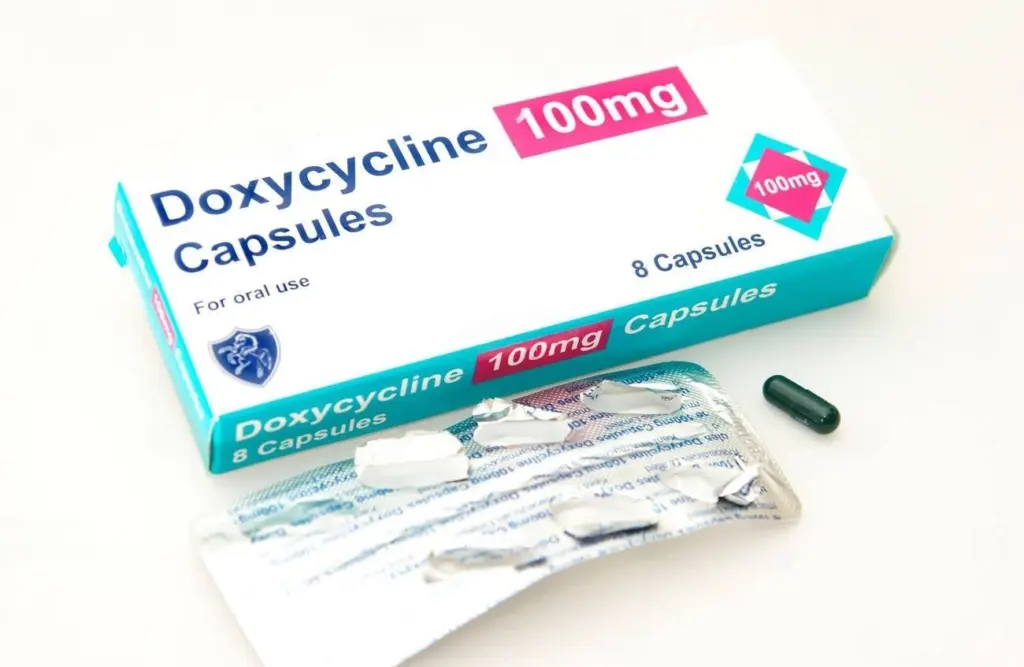Chlamydia is a prevalent sexually transmitted infection (STI) that often remains undetected due to its subtle symptoms. If left untreated, it can lead to significant health issues, particularly in women. Fortunately, doxycycline serves as a highly effective treatment for chlamydia. This article delves into everything you need to know about using doxycycline as a treatment, including its mechanism, purchasing options, and guidelines for safe and effective usage.
Chlamydia is caused by the bacterium Chlamydia trachomatis and is one of the most frequently reported STIs, especially among young adults. Regular testing is crucial for sexually active individuals since many people with chlamydia may not exhibit symptoms.
Chlamydia trachomatis is a bacterium that specifically targets the genital tract, but it can also infect the throat and eyes. Its stealthy nature allows it to spread easily, often without immediate detection. Understanding its biology helps in comprehending why it often remains unnoticed.
Chlamydia is especially common in young adults, with statistics highlighting its widespread nature. Awareness campaigns and educational programs are essential to reduce its prevalence. Knowledge about its commonality can drive individuals towards seeking regular testing and adopting preventive measures.
Regular testing is vital due to the asymptomatic nature of chlamydia. Early detection through routine screenings can prevent complications. Testing should be a standard practice for sexually active individuals, particularly those with multiple partners.
Chlamydia can present several symptoms that vary slightly between men and women. Recognizing these can aid in early diagnosis and treatment.
Women may experience painful urination, lower abdominal pain, and vaginal discharge. These symptoms can sometimes be mistaken for other conditions, which is why medical consultation is crucial. Additionally, painful intercourse can be a significant indicator of infection.
Men may notice discharge from the penis and experience testicular pain. These symptoms, though uncomfortable, might be overlooked, leading to delayed treatment. Awareness of these signs can prompt timely medical intervention.
While symptoms are often mild, they can lead to severe health complications. In women, untreated chlamydia can escalate to pelvic inflammatory disease, while in men, it can affect fertility. Both genders risk infertility if the infection is not addressed promptly.
Doxycycline, an antibiotic from the tetracycline class, is effective against chlamydia. It inhibits bacterial protein synthesis, stopping the bacteria from multiplying and spreading.
Doxycycline targets the bacteria’s ability to produce proteins essential for growth. By inhibiting protein synthesis, it effectively halts bacterial proliferation. This mechanism makes doxycycline a potent weapon against various bacterial infections, including chlamydia.
The typical dosage for chlamydia treatment is a 100 mg tablet taken twice daily for seven days. Adhering to this regimen is crucial for eradicating the infection. Completing the full course, even if symptoms improve, ensures complete bacterial elimination and prevents antibiotic resistance.
Compliance with the prescribed doxycycline regimen is essential. Incomplete treatment can lead to persistent infection and increased resistance. Patients are advised to follow medical instructions precisely to achieve optimal outcomes.
While generally well-tolerated, doxycycline can cause certain side effects. Understanding these potential reactions can help manage them effectively.
Common side effects include nausea, vomiting, diarrhea, and sensitivity to sunlight. Awareness of these effects can prepare patients for potential discomfort. Taking doxycycline with food and avoiding direct sunlight can mitigate some side effects.
In rare cases, doxycycline can cause severe allergic reactions. Symptoms such as difficulty breathing or swelling require immediate medical attention. Prompt response to severe reactions is crucial for patient safety.
Managing side effects involves proactive measures like staying hydrated and following dietary recommendations. Patients should consult healthcare providers for tailored advice if side effects persist. Effective management ensures treatment adherence and enhances patient comfort.
Obtaining doxycycline requires a prescription from a healthcare provider. This ensures the medication is suitable for your condition and provides an opportunity to discuss potential side effects.
A prescription verifies that doxycycline is appropriate for your specific case. It also facilitates monitoring for adverse reactions. Consulting a healthcare provider ensures safe and effective treatment.
During the consultation, discuss any existing health conditions or medications. This information helps tailor the treatment to your needs. Open communication with your healthcare provider enhances treatment success.
Regular follow-ups allow for monitoring of side effects and treatment efficacy. Reporting any adverse effects promptly ensures timely intervention. Ongoing communication with your provider is key to a smooth treatment journey.
Doxycycline is widely available at pharmacies nationwide. With a prescription, purchasing it from local or online pharmacies is straightforward.
Local pharmacies provide immediate access to doxycycline. They offer convenience and the opportunity to consult pharmacists for additional guidance. Building a relationship with your local pharmacist can enhance your healthcare experience.
Online pharmacies offer convenience, especially for those with limited access to local options. Ensure the online pharmacy is reputable and requires a prescription. Verifying the legitimacy of online sources is crucial for safety.
Comparing local and online pharmacies can help find the best option for your needs. Consider factors like price, convenience, and delivery options. Making an informed choice ensures a smooth purchasing process.
Purchasing doxycycline online can be convenient but requires caution. Ensuring the pharmacy’s reputation and prescription requirements is crucial.

Verify the legitimacy of online pharmacies before purchase. Look for accreditation and customer reviews as indicators of reliability. Avoiding unverified websites protects against counterfeit or unsafe medications.
Online purchases offer discretion and convenience. Medications delivered directly to your door eliminate the need for pharmacy visits. This option is particularly beneficial for those with mobility issues or busy schedules.
Unverified online sources pose significant risks, including counterfeit medications. These can be ineffective or harmful. Ensuring the pharmacy’s credibility is essential for safe online purchases.
Ordering doxycycline online involves a simple process with a valid prescription. Choose a licensed pharmacy, upload your prescription, and place your order.
Start by selecting a reputable online pharmacy and creating an account. Upload your prescription and select the doxycycline dosage. Complete the purchase, and the medication will be delivered to your specified address.
Online pharmacies prioritize discretion and security. Personal information and medical details are protected through secure systems. Choosing a pharmacy with robust security measures ensures privacy.
Monitor the delivery process to ensure timely receipt of the medication. If there are delays or issues, contact the pharmacy’s customer service. Following up on your order ensures you start treatment promptly.
To maximize doxycycline’s effectiveness and minimize side effects, adhere to these safety guidelines.
Each dose of doxycycline should be taken with a full glass of water. This prevents esophageal irritation and ensures proper absorption. Proper hydration is an important aspect of the medication regimen.
Doxycycline increases sensitivity to sunlight, raising the risk of sunburn. Wear protective clothing and apply sunscreen when outdoors. Taking precautions against sun exposure protects your skin.
Complete the entire course of doxycycline, even if symptoms improve. This ensures the infection is fully treated and reduces the risk of resistance. Adherence to the prescribed regimen is crucial for successful treatment.
Discuss any other medications you are taking with your healthcare provider. Some drugs can interact with doxycycline, affecting its effectiveness or increasing side effects. Open communication with your provider ensures safe medication use.
Certain foods can affect doxycycline absorption. Avoid dairy products close to dosing times, as calcium can interfere with absorption. Following dietary guidelines enhances the medication’s effectiveness.
While doxycycline effectively treats chlamydia, prevention is always preferable. Here are tips to reduce your risk of contracting chlamydia.
Consistent and correct use of condoms during sex significantly reduces STI transmission. Condoms provide a barrier that protects against chlamydia and other infections. Practicing safe sex is a fundamental preventive measure.
Regular STI screenings are vital for sexually active individuals. They enable early detection and treatment, preventing complications and reducing spread. Screenings should be a routine part of sexual health maintenance.
Reducing the number of sexual partners lowers STI exposure risk. Open communication about STI prevention and testing with partners is crucial. Being selective and communicative about partners promotes safer sexual health practices.
Educating yourself and your partners about chlamydia and its risks encourages informed decisions. Open dialogue about sexual health fosters mutual understanding and prevention. Knowledge and communication are powerful tools in STI prevention.
Doxycycline is a reliable and effective treatment for chlamydia, aiding in infection eradication and complication prevention. By understanding doxycycline’s function, safe purchase options, and correct usage, you can ensure successful treatment outcomes. Remember, prevention through safe sex practices and regular screenings is key to maintaining sexual health.
If you suspect you have chlamydia or have been diagnosed with it, consult a healthcare provider for a proper diagnosis and treatment plan. With the right approach, you can protect your health and the health of your partners.





